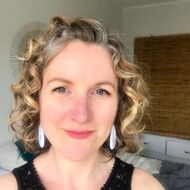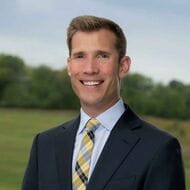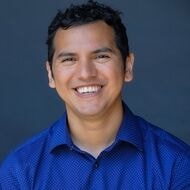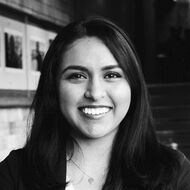
Developing Visible Allies for LGBTQ+ Students
These leaders are working in the classroom, school system, and community to provide more educators with resources for supporting LGBTQ+ students in schools.
In June we celebrate LGBTQ+ Pride month and honor the progress and sacrifices members of the LGBTQ+ community and its allies have made to advance equity for all identities—work that is critical for ensuring children's’ safety and wellbeing in schools.
School climate has a tremendous influence on outcomes for LGBTQ+ students. Students who experience bullying at school because of their sexual orientation or gender expression were almost three times more likely to have skipped school because they felt unsafe. As a result, they have a higher risk for low academic achievement, low self-esteem, and depression when compared to students who did not experience victimization.
A hostile school climate also puts LGBTQ+ students at higher risk of dropping out. A 2016 report found that LGBTQ+ students who experienced higher levels of victimization at school based on their sexual orientation and gender expression were three times more likely than other students to report that they may not complete high school.
Yet studies also show that having a visible ally in schools means students are more likely to attend school and feel a sense of safety and belonging. Leaders from across TFA’s network are working alongside students, fellow teachers, and community members to help prepare more educators to be effective allies. They are sponsoring clubs for LGBTQ+ students, increasing educators’ access to resources for creating safe and affirming classrooms, and supporting students’ health and wellbeing.
Here is how three leaders from the TFA network are influencing change for LGBTQ+ students inside and outside of schools.
Changing the Culture at Dater High School
In the two years since Akshayaa Venkatakrishnan (Southwest Ohio ‘17) began teaching at Dater High School in Cincinnati, OH, she’s seen a dramatic positive change in the way LGBTQ+ students are treated on campus. Akshayaa believes the big reason behind the culture shift was relaunching the school’s GSA, which stands for “gay-straight alliance.” GSAs are student-run clubs that unite LGBTQ+ students and allies to build a safe and inclusive community for students of all sexual orientations and gender identities.
“Having a GSA makes LGBTQ+ students feel like they have a place to go,” Akshayaa says. “I think it also makes other students who might use homophobic or transphobic language think a little bit harder about the words that they're saying.”
When Akshayaa began teaching, she hung a calendar of LGBTQ+ community events in her classroom, signaling to her students that she was an ally they could talk to. Seeing the calendar piqued her students’ curiosity, and emboldened a few to approach her about sponsoring a GSA.
“I think it's important because it fosters conversations with students,” Akshayaa says. “It’s a way for them to see that there are people who will support them, speak up for them, and educate them when they are unsure about things."
Many GSA's aren't labeled as such because attending these clubs can be stigmatizing, especially for low-income students and students of color. Renaming the club also allows allies and students who haven't yet come out to their peers to attend without having to self-identify as LGBTQ+. Akshayaa’s students named their GSA “True Colors,” which honors the intersectionality of race, gender, orientation, and privilege among the club’s members.
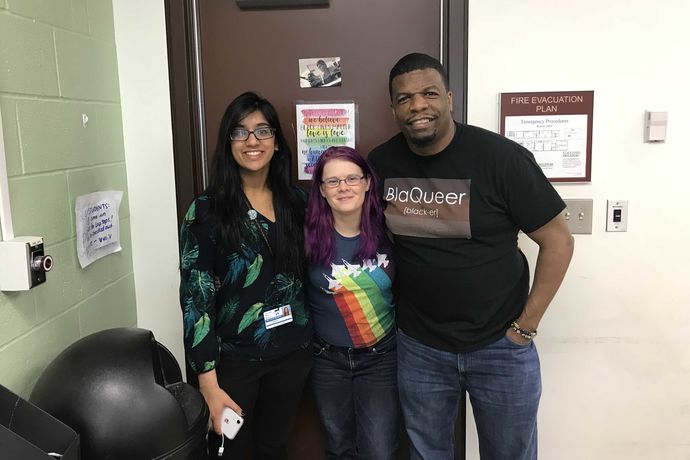
The members of True Colors are leading professional development for teachers and building a partnership with GLSEN, which stands for “Gay, Lesbian, and Straight Education Network,” and with advocates for safe schools for LGBTQ+ students. Club members led a panel discussion at the GLSEN summit in Cincinnati last fall, sharing tips with their peers on how to start a GSA.
“Students made some really great connections and were able to demonstrate their leadership and advocate for themselves,” Akshayaa says.
A GSA can play a big role in creating a more LGBTQ+ inclusive school culture, but administrators and teachers must also play a role by taking a stand when students make homophobic or transphobic comments. After True Colors members led a training session for teachers at Dater High School last year, over half of the attendees have put up safe space posters in their classrooms, showing their allyship with LGBTQ+ students.
“That translates to students feeling comfortable and saying, ‘I'm going to stand up for my peers too,’” Akshayaa says. “That’s the kind of ripple effect that we're seeing here.”
Expanding Educator Support for LGBTQ+ Students in Rural Arkansas
Arkansas is one of the few states with laws that specifically prohibit bullying and harassment of students based on sexual orientation and gender identity. GSAs are also supported under the law, but some school administrators have discouraged or prevented students from starting one.
After hearing repeated stories from students about bullying going unchecked at school, TFA alumni and community partners mobilized in 2014 to launch a GLSEN chapter in southeast Arkansas—the first chapter to exist in the state. GLSEN has regional chapters across the country and offers that training for educators to support LGBTQ+ students in schools.
“We had educators reaching out across the state saying that their LGBTQ+ students were experiencing bullying in school,” Washington Navarrete (Arkansas ‘14) says. “Teachers came to us looking for training and support that their principals weren’t providing.”
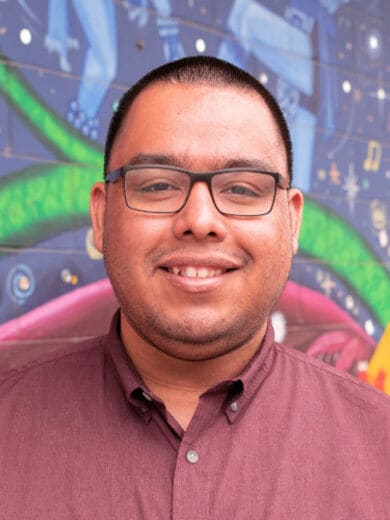
Washington serves as an education coordinator and trainer for the Arkansas GLSEN chapter. He's helped to build partnerships between GLSEN, teacher preparation programs, LGBTQ+ civil rights organizations, and TFA’s summer training institute for its rural Southern regions. This work has led to more educators having access to resources for supporting LGBTQ+ students in schools across the state.
“Coalition building has been instrumental in making this sustainable for us,” Washington says. “We need to work together because these things are not going to happen in silos.”
The Arkansas GLSEN chapter is also working with school administrators to ensure that they are upholding policies protecting students' rights to start GSAs. Washington and the Arkansas GLSEN team lead training on how to create a safe and inclusive classroom for LGBTQ+ students, and how teachers can navigate conversations about gender and sexuality, without putting their jobs at risk. In the challenging landscape, even the smallest gestures of allyship make a big difference for students.
“We have these super small safe space stickers that teachers will put on the leg of their desk,” Washington says. “LGBTQ+ students are looking for those signs—looking to see who in the building is an ally they can talk to.”
Supporting LGBTQ+ Student Health in Birmingham Schools
Community organizations play a critical role in supporting LGBTQ+ students outside and inside schools. In addition to serving as information hubs, these organizations also offer expertise to help educators extend their support for LGBTQ+ students inside the classroom. This is one of Kevin Tarver’s favorite things about his job.
“It’s really fun to talk to middle schoolers,” Kevin says. “Of course they are going to giggle. But they are smarter than we think and ask the best questions.”
Kevin answers a lot of questions from students and adults as the director of prevention education at Birmingham AIDS Outreach (BAO). He travels to schools, community centers, and hangout spots around the city, educating people about safe sex and HIV prevention.
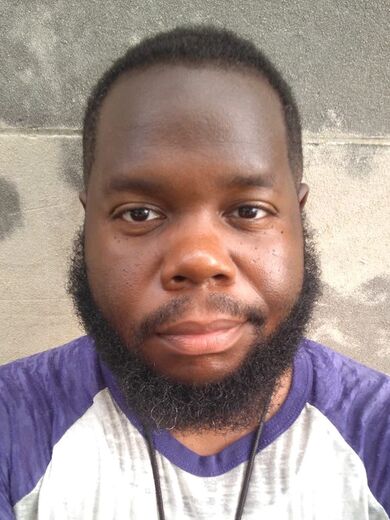
After moving back to his hometown of Birmingham, AL, Kevin joined the Alabama Prism coalition, TFA’s advocacy and support group for LGBTQ+ students and educators. The group was seeking more community partners to include in its membership. Kevin’s role at BAO and his work as a Black gay activist was a perfect fit. Through the connections he’s formed with corps members and alumni teachers, he’s had the opportunity to visit their classrooms as a guest speaker, reaching hundreds of students across Birmingham.
“It was a way to have a conversation with students in a safe environment and to make sure that the right information is being given to them,” Kevin says. “I didn’t have opportunities to talk about these things when I was a student.”
Outside of his work with BAO, Kevin has helped the Alabama Prism coalition lead candid conversations with educators on how to create safe spaces in schools for students to explore the intersectionality of the different facets of their identities. Students of color who also identify as LGBTQ+ have to navigate multiple identities and are more likely to encounter racism and homophobia from both inside and outside of their community.
“These outlets still don’t fully exist for Black LGBTQ+ youth,” Kevin says. “There are a lot of helpful online resources out there, but students may not know where to look, so it is helpful to have a visible ally with the correct resources to provide.“
Sign up to receive articles like this in your inbox!
Thanks for signing up!
Content is loading...


